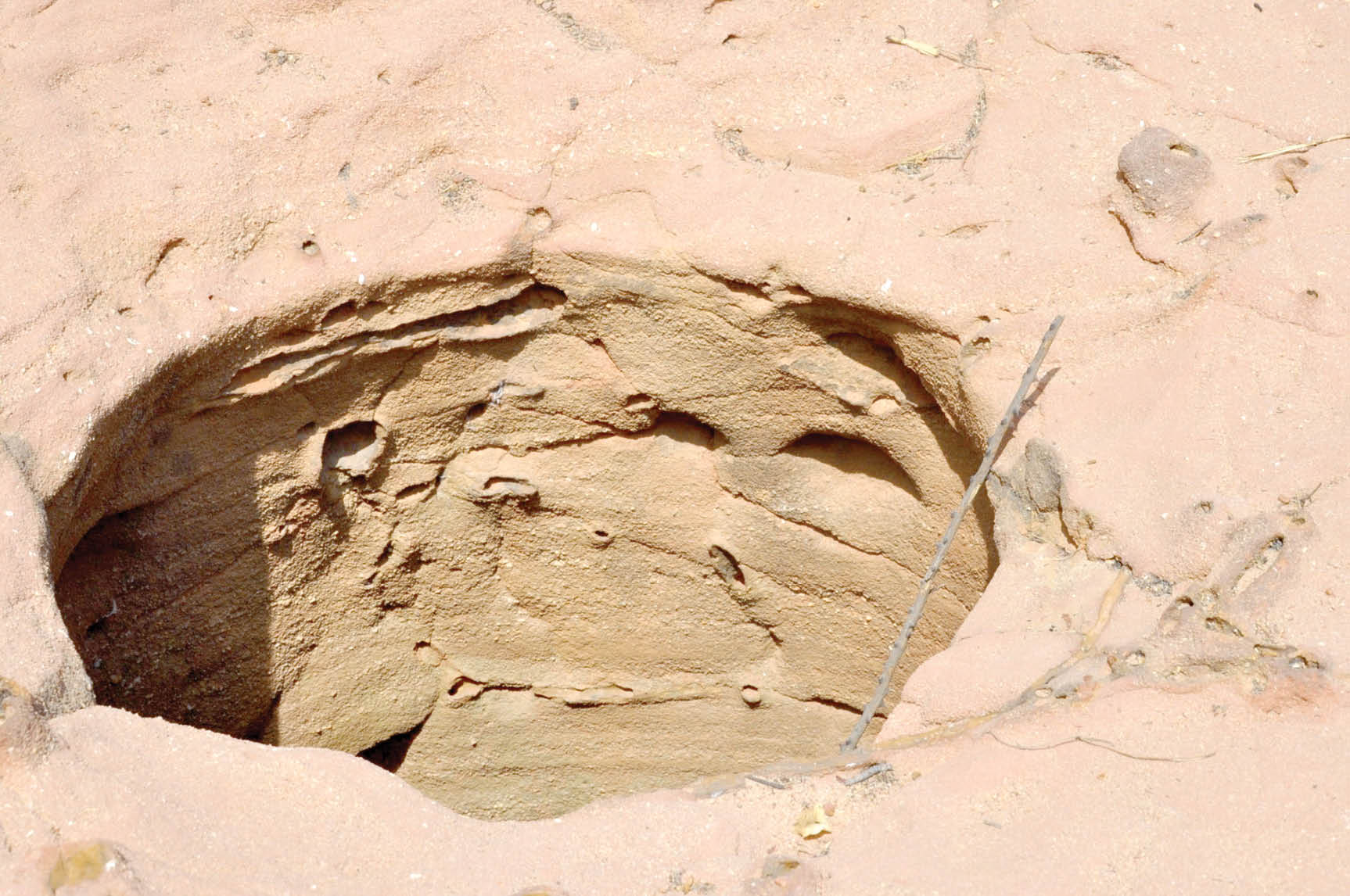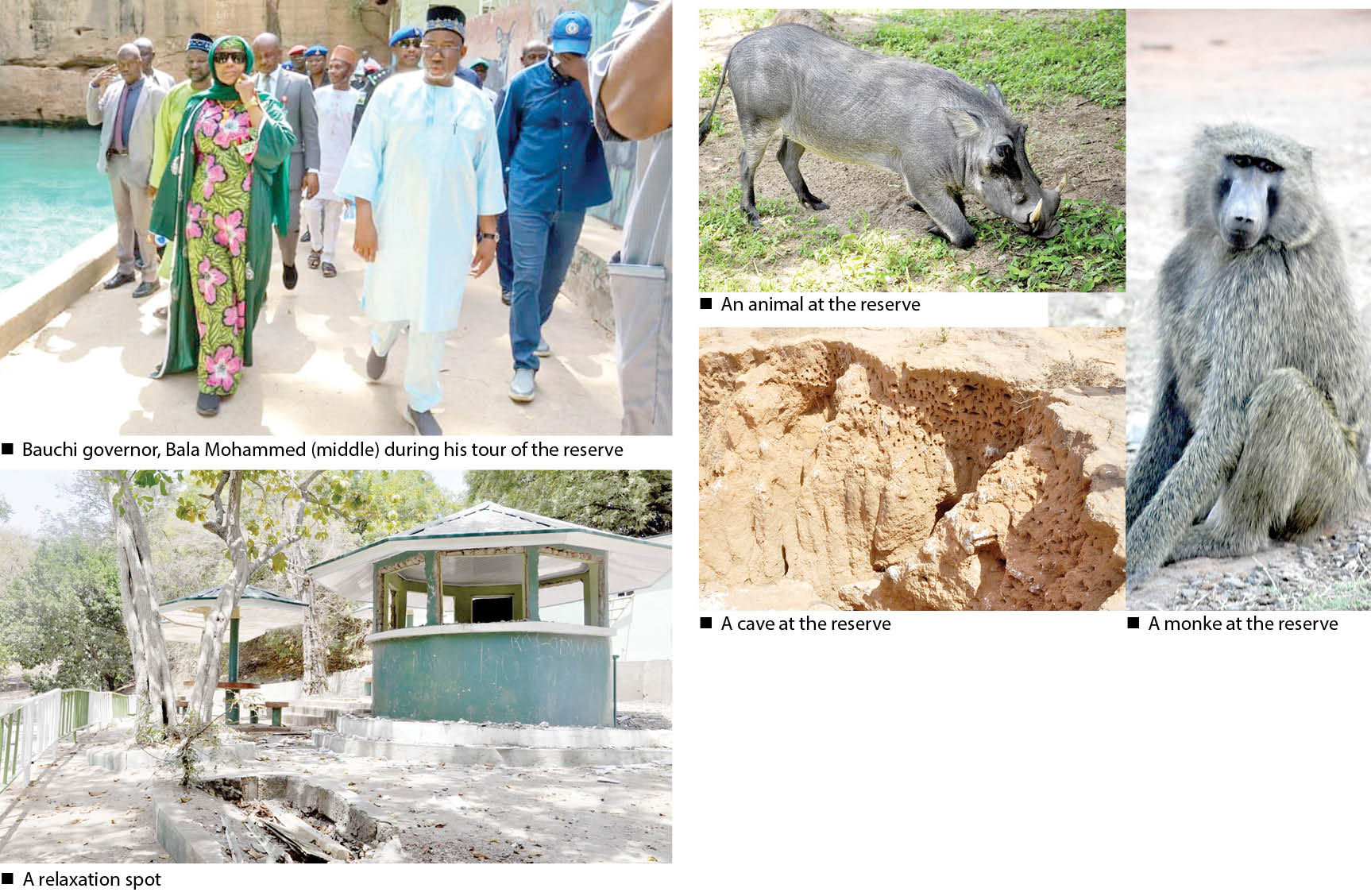Inside declining fortunes of Yankari Game Reserve
Bauchi is a state blessed with numerous tourist destinations, earning it the slogan, “The Pearl of Tourism. Among these attractions, the Yankari Game Reserve stands out as one of the best tourist destinations in Africa. Established in 1956 and opened to the public on December 1, 1962, Yankari was upgraded to a National Park in […]

one of the dukke wells
Bauchi is a state blessed with numerous tourist destinations, earning it the slogan, “The Pearl of Tourism. Among these attractions, the Yankari Game Reserve stands out as one of the best tourist destinations in Africa. Established in 1956 and opened to the public on December 1, 1962, Yankari was upgraded to a National Park in 1991 and managed by the National Parks Service until 2006, when the responsibility was handed back to the Bauchi State government.
Located in Alkaleri Local Government Area, Yankari covers an area of about 2,244 square kilometres and is home to several natural warm springs and a wide variety of fauna and flora. The reserve harbours over 50 species of prized indigenous wildlife, including baboons, monkeys, warthogs, hippopotamuses, lions, elephants, zebras, impalas, birds, and many others.
It also hosts more than 350 species of indigenous birds, 26 species of fish, 7 amphibians, and 17 species of reptiles, attracting researchers, artists, musicians, students, tourists, and holidaymakers from around the world.
The Yankari Game Reserve is one of Africa’s biggest and premiere games reserves. This tourist’s delight is strategically placed to serve as a revenue booster to the state.
- Flood: Borno announces reliefs account, urges donation for victims
- Turji’s N30m levies and military siege in Zamfara
In the early 50s to 60s, it was learnt that the Yankari served as a major revenue source and source of employment for Bauchi State.
It was the only industry that had the ability to take care of itself without government support. Unfortunately, today, it has been neglected due to insecurity, low patronage and epileptic power supply. There are a number of attractions for tourists and holidaymakers at the Yankari Game Reserve.
The Historical Dukke Wells
Apart from the attractive fauna and flora of the Yankari Game Reserve, one important historical spot and attractions at the Reserve is the Dukke Wells.
The Dukke Wells in Yankari served as a resting place for slave traders when travelling from Duguri to Pali during slave trade period. It’s a historical attraction that shows how the settlers managed their water supply. It is a channel of 132 wells linked underneath to each other by shafts.
The wells are named after the famous Dukke slave transit camp established during the last 19th Century slave trade. Some of them are interconnected, dug in the red sandstone area about 31km of Wikki Camp.
Slaves were said to have been used to dig the wells. It was also learnt that the wells served as water storage facilities for the traders and their slaves. Dukke wells provide an explanation to how people of the 19th Century developed their own technology of preserving water.

Wikki Warm Spring
Wikki Warm Spring is the largest of the four warm springs in Yankari. It is a natural spa with constant temperature of 31.1°C through the year during the day and at night with a crystal clear 13 meters wide and two meters deep, perfect for a swim. Dimmil, Gwana and Mawulgo are the other springs at the Reserve.
Museum
Yankari Museum is another attraction in the reserve. It houses trophies of wildlife parts such as skins, tusks, bones, horns and full mounts of some wildlife species of the park; taxidermy arts and hunting gears retrieved from poachers. It was declared open in 1985.
Marshall Caves
The Marshall Caves located 7km east of Wikki Camp in Yankari are a set of 59 interconnected dwellings believed to have provided shelter to ancient people during the slave trade. It was dug out of sandstone escarpments. The caves have rock paintings and engravings.
Shau-Shau Iron melting site
The shau shau iron smelting works is located in Yankari. It has about 60 standing shaft furnaces; one of the world’s most extensive concentrations of early iron smelting sites, also the largest historical industrial complex of its time in the West Africa sub-region.
Yankari faces poaching, encroachment, security challenges
Despite its potentials and alluring attractions, the Yankari Game Reserve had faced severe threats and neglect over time. From 2006, the reserve began to witness a decline. During this period, elephants were allegedly killed to supply Nigeria’s illegal ivory trade. However, a 2014 agreement between the Wildlife Conservation Society (WCS) and the Bauchi State Government has helped to curb elephant poaching, with no carcasses recorded since May 2015.
However, conflicts between elephants and local communities, who farm right up to the reserve’s edge, are growing. Infiltration by pastoralists, illegal bush burning, and encroachment by farmers exacerbate these conflicts, leading to the loss of lives and property.
Poaching of large mammals for the lucrative bush meat trade threatens the reserve’s ecotourism potential and the survival of endangered species like lions and elephants. Climate change and the loss of grazing reserves also contribute to the challenges, with transhumant pastoralism displacing wildlife and increasing disease risk.
Successive administrations had made efforts to enhance Yankari’s tourism potentials. Such efforts include constructing roads linking Yankari to the Bauchi-Gombe federal highway, building standard accommodations, conference centres, and a theatre, and ongoing airstrip construction for chartered flights.
Despite these improvements, the lack of trained and competent staff to manage the facilities has affected the influx of tourists, Weekend Trust gathered. Workers at the reserve, who spoke to Weekend Trust, cited insecurity, high living costs, and animal poaching as reasons for the decline in number of visitors. The workers, who do not want to be mentioned, called for more government support and private partnerships to restore Yankari’s fortunes.
Govt’s efforts to revive Yankari
As part of his efforts to revitalise it, Governor Bala Mohammed paid an unscheduled visit to the reserve about two months ago where he reiterated his commitment to improve its status.
He said while his administration had executed several infrastructural projects in the state, there was a need to now turn attention to the tourism sector, which is what Bauchi is known for.
Governor Mohammed said the previous administration of former Governor Ahmed Mu’azu invested and transformed Yankari Game Reserve, but regretted that nothing had been done since then.
He said as a native of Duguri, one of the communities around the reserve, he has a duty to upgrade the Yankari Game Reserve to attract tourists and improve revenue for the state.
The state’s Commissioner for Tourism and Culture, Alhaji Abdul Hassan, highlighted several government initiatives, including renovating facilities, procuring game-viewing vehicles, training rangers, reconnecting the reserve to the national grid and upgrading the Museum of Natural History.
Hassan added that there were some major works executed by the government that included renovation of the new Yankari-Bauchi head office building (80% completion); building of new Rangers Barracks in Wikki Base Camp in collaboration with Bauchi State Government and Wildlife Conservation Society (WCS) -2021; procurement of two new land cruiser game viewing vehicles; modern patrol kits for the rangers, refurbishment of toilets and changing room at the Wikki Warm Spring and training of rangers by the Agro-Climatic Resilience in Semi-Arid Landscape (ACRESAL), among others.
He said the aim of the government was to build ecotourism and grow the internationally generated revenue of the state.
He further stated that the fear of insecurity, disease and other challenges did not affect the quality and standard of facilities at the game reserve. He assured that when the government completes the ongoing renovations, visitors to the reserve will have value for their money.
A former Tourism Board chairman and lecturer with the Abubakar Tafawa Balewa University, Bauchi, Professor Isah Mohammed, described the situation at the Yankari Game Reserve, as pathetic, compared to what it was when it was established in 1954.
“If you go to the Yankari Game Reserve today, you can hardly see animals, except the pyramids and baboons and their presence is confined within the camp area. If you go beyond the camp, you can’t see the baboons because of the pressure on them by factors such as hunting and grazing. I hope that the government of the day comes and rescues the reserve,” he said.

Visitors share experiences
Visitors to Yankari, like Zulkiflu Sani, Wasilatulkhayr Umar, Elizabeth Haroona, and Moses David, said they enjoyed the warm springs and serene environment, but express disappointment in the limited game viewing opportunities.
They suggested the construction of a wildlife park or zoo within Yankari.
“I enjoy seeing animals in their natural habitat. Now, I hardly see animals whenever I visit the reserve,” Sani said.
Umar on his part advised the government to consider making the reserve more natural, so that the wild animals will feel more at home.
“We learnt that the erection of buildings within the reserve sometimes scare the animals, forcing them to go into the thick forest. We heard that some animals like lions and hyenas mostly come out at night.
“Government should invest more in the game reserve and make it more attractive to visitors,” he said.
